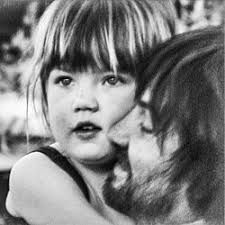“The Letters That Guided Us” is a short film set during the Vietnam War, directed by Clemson University student, Horace Priester.
“Letters” is the story of William Warren, played by Aleks Kapetanovic, a young man who is drafted into the military during the Vietnam War era. “Letters” is not like conventional movies set during this era, as it instead focuses on the struggles experienced by the people who live within Warren’s town. The film broadcasts the drama that the war carries, even thousands of miles away from the battlefield.
Priester’s direction of the short film is relatively advanced, especially for a young and aspiring filmmaker, as he constructs a plot that alternates back and forth between three different periods of William’s life. This postmodern effect in a short film, produced by a college student, showcases the sophistication of Priester’s directing and his comprehension of writing and camera work.
Despite the low production value of the film and the limited experience of both the directors and actors, this short film was well made and well-acted.
Priester’s direction and his writing, along with co-writer Aleks Kapetanovic, seems to take heavy influence from both Quentin Tarantino and Oliver Stone, the former of which is well known for his films set in the Vietnam War era.
Overall, the movie was good for a student-made movie. The acting was strong and consistent throughout the movie, and there was fantastic chemistry between William Warren and James Wirth (played by Justin Burrell). The transition of understanding what war truly was and how it affected the town citizens’ thoughts on life was well-written as well. The basic training scenes stood out for their humor, balanced with tense, competitive moments. It also helped that the drill sergeant in the movie is played by an actual drill sergeant, and ROTC students played extras throughout the scenes in basic training.
Some scenes in “Letters” lacked the common sense of a character within a war movie; however, the film is a drama so it cannot be much of a shock with a few convenient moments of unawareness for a character. This movie really emphasized the characters’ “daddy issues” throughout the film with the strained relationship between William and his father. Nevertheless, the film does show how sacred life can be and how important family is, and living with as few enemies as possible.
Another added effect of the movie was its score. Performed by Stephen Hill, the music was emotionally-stirring and had a dramatic tone throughout the movie, which blended both loud and soft tones, as well as added to the mood and general depth of the film.
The plot of “Letters” did not focus much on an actual letter, as the title suggests, but more of the meaning behind a letter: what a letter can represent to those who receive one from a loved one. In the case of the movie, this was the effect a single letter can do to change a person. The idea of what a letter can represent was the main theme throughout the whole movie.
Given the directors’ resources and the actors’ experience, “The Letters That Guided Us” was a very well-made film, and it is clear that both Priester’s film career and Clemson’s film department have a bright future ahead.
Categories:
‘The Letters That Guided Us’: a movie review
By: Thomas Skjerning, Contributor
February 12, 2018
0
Donate to The Tiger
Your donation will support the student journalists of Clemson University. Your contribution will allow us to purchase equipment and cover our annual website hosting costs.
More to Discover








